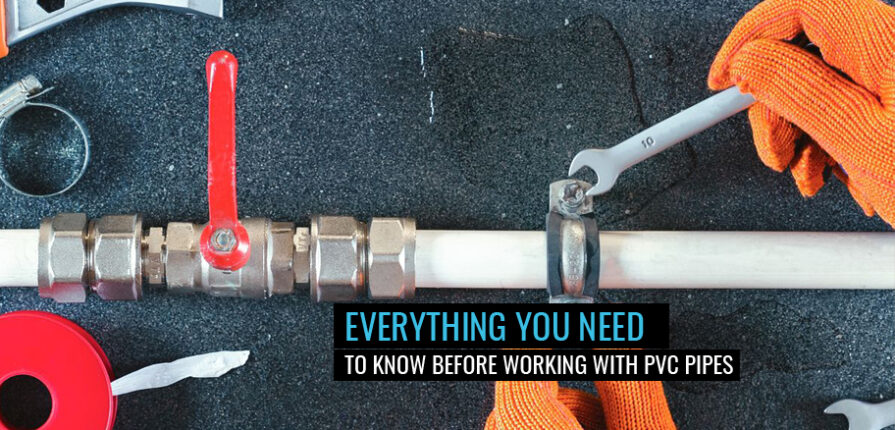Although plastic has taken over our lives, not all plastic harms humans. PVC pipes, one of the most widely used items in the industrial world today, have earned the gratitude of many in that sector. An essential component of every industrial application,it’s synthetic polymer has been chiefly employed in the form of pipes and fittings. You might have been using this pipe and fittings regularly until now, but how well do you understand them? To learn some of the most fundamental facts regarding this Pipes and Fittings, scroll down below if you don’t mind.
PVC Pipes: Types
The four main varieties of PVC pipes, commonly known as polyvinyl chloride pipes, are PVC-U, C-PVC, PVC-O, and PVC-Hi. Nowadays days, plumbing frequently uses these pipes because of their longevity. The capacity to bear water pressure without cracking or tearing. Nowadays, plumbers choose PVC since it is much simpler to repair PVC leaks than copper sewers.
Even though all four varieties of PVC pipes share the same qualities, including durability, safety, and recyclability, they also make exact differences.
What Are PVC Pipes’ Advantages?
There are several things to consider when selecting the best plumbing for a project. But what advantages can PVC pipes offer?
The lifespan of this pipes is very lengthy, and they are strong enough to endure pressure and environmental factors. They’re also non-toxic and corrosion-resistant, making them suitable for indoor and outdoor use. PVC may also be bonded together using adhesive fittings or solvent welding, making installing it simple.
· Due to their non-toxicity, they may be indoors and outside.
· This last very long and are strong enough to endure pressure and environmental factors. Therefore, it is a wise choice if you want pipes that will last long.
· When compared to concrete and metal, PVC and moving liquids have less friction because of their smooth surface. Because of this, it is a favored material for water supply pipes.
· They are portable and straightforward to install. As a result, they are an intelligent choice for tasks where weight is an issue, including plumbing in existing or high-rise structures.
· PVC pipes are a fantastic option for outdoor applications since they resist rust and the elements.
· It is a flexible material with various uses since it is simple to mold into diverse shapes.
Don’ts for PVC Pipe Assembly:
· Never use metal hooks or nails to support, hold, or pressure the pipes. Avoid using hangers and straps with jagged or pointed edges. The straps over the pipes shouldn’t be tightened.
· Never try to bend a pipe when it is near an open flame.
· Never drop pipes from a height onto an edge. Likewise, avoid walking on or dropping anything heavy onto pipes.
· Do not use any other sealant, adhesive, lubricant, or fire-stopping petroleum- or solvent-based substance.
Why plumber’s best choice:
· Consequences of corrosion:
PVC pipes are less prone to corrosion than those made of diverse materials. Therefore, PVC can endure this for more secure pipes since corrosion can even result in water mains exploding, which can cause significant damage.
· Resistance to chemicals:
The resistance of PVC pipes to various chemical reagents and disinfection chemicals is also quite good. In most water infrastructure projects, they are used to transport acids, alkalis, aqueous solutions, fluorides, plating solutions, brine, mineral oils, and much more.
On a note, with roughly 40 million tons produced each year, PVC pipes are among the most widely produced pipe in the world. This proves that it is a famous pipe utilized for commercial and residential applications. Now, you know everything, so work accordingly.

